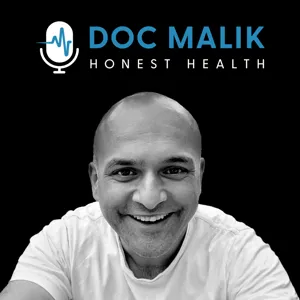Podcast Summary
Understanding Vaccine Hesitancy: A Father's Perspective: Despite being eligible, 90 million Americans are hesitant to get the COVID-19 vaccine. A father's reasons include reluctance to be an early adopter, concerns about side effects, and rapidly changing information.
There are approximately 90 million Americans who are eligible for the COVID-19 vaccine but have chosen not to get it. A New York Times reporter interviewed a man named Don Driscoll, a single father from suburban Pittsburgh, to understand the reasons behind his decision. Don, who works as an accessibility writer, has received other vaccines for himself and his 7-year-old daughter but is not yet convinced to get the COVID-19 vaccine. He cited his reluctance to be an early adopter and the rapidly changing information about the vaccine as reasons for his hesitancy. Don also expressed concerns about potential side effects and the possibility of future upgrades or replacements for the vaccine. He does not believe in conspiracy theories surrounding the vaccine and is not against getting it eventually, but for now, he feels no urgency. The interview highlights the complexity of reasons for vaccine hesitancy and the importance of understanding individual perspectives.
Considering the Benefits and Necessities of Getting Vaccinated: The speaker is open to getting vaccinated but wants more information before making a decision. They prioritize safety and are not making a political statement.
The speaker is hesitant to get vaccinated but open to being convinced, particularly if there are significant benefits or requirements that make it necessary. They have been following safety protocols and have not gotten sick, so they are considering continuing with those measures instead. The speaker identifies as fiscally conservative, socially liberal, and leans more towards the conservative side, but their decision to get vaccinated is not a political one. They are waiting for more information and will make a decision when they feel it is most beneficial or necessary.
Personal experiences and beliefs shape vaccination decisions: Individuals' decisions to get vaccinated can be influenced by their past experiences, beliefs, and faith.
Personal experiences and beliefs can significantly influence an individual's decision to get vaccinated. The discussion with Angelique White, a 28-year-old hairstylist, revealed her negative experience with the flu shot when she was younger, which made her hesitant to get vaccinated again. Despite living and working around people, she prefers to wear masks, sanitize her hands, and maintain good health instead. Conversely, Jeanne, a 39-year-old teacher, shared her experience of raising an unvaccinated son without any issues in the school system. She believes that vaccines are toxic and has not gotten vaccinated since she was a child. Their unique perspectives demonstrate that people's decisions regarding vaccination can be influenced by various factors, including personal experiences, beliefs, and faith.
Mother's decision on vaccination and mask mandate for her son: Individuals prioritize personal beliefs and health concerns when making vaccination decisions, and respecting autonomy is crucial in maintaining open dialogues.
Some individuals hold strong convictions against getting vaccinated due to personal beliefs and health concerns. This discussion revolves around a mother's decision not to get vaccinated herself and her concerns about her son's potential mask mandate at school if he remains unvaccinated. She emphasizes her belief in individual freedom and the importance of considering each person's unique medical history. The conversation also touches upon the potential social implications of vaccination status, with vaccinated students not needing to wear masks while unvaccinated students do. The mother expresses her hope that her son will not choose to get vaccinated but will continue to prioritize his health. She acknowledges the importance of respecting her son's autonomy in decision-making while maintaining an open dialogue about the reasons behind her stance. Overall, the conversation highlights the complex and deeply personal nature of vaccination choices and the importance of respecting individual perspectives.
Personal Decision to Get Vaccinated: A Balance of Health and Community Protection: Individuals weigh their confidence in their immune systems, trust in medical community, and concern for others when deciding to get vaccinated against COVID-19.
While some individuals, like the mom in Port St. Lucie, Florida, may have confidence in their immune systems to recover from COVID-19 without getting vaccinated, others may prioritize getting vaccinated to protect those around them. The mom in the discussion shared her experience of contracting COVID-19 twice, with the second time being more severe. She did not get vaccinated despite having a strong immune system and did not change her lifestyle between the two infections. She believes in the effectiveness of her immune system and social distancing. However, some argue that getting vaccinated, even if one is healthy, helps protect others. The mom's story illustrates the personal nature of the decision to get vaccinated, as individuals weigh their own health, trust in the medical community, and concern for others.
Regrets over Unvaccinated Family Member Spreading COVID-19 to Grandmother: Making informed decisions about vaccinations is crucial, considering individual circumstances and reliable information. Unintended consequences can be severe.
The COVID-19 pandemic has brought up complex emotions and difficult decisions for families, particularly when it comes to vaccinations. In the conversation, it was shared that a family member, who was unvaccinated and worked in a bar, unknowingly spread COVID-19 to their 89-year-old grandmother, Mary Lou Potter, who passed away from complications including COPD and aspiration. The family regrets not getting her vaccinated due to fears of reactions and it not being FDA-approved at the time. The conversation also touched upon the varying reactions people have had to the vaccine, with some experiencing no issues at all while others have had more serious reactions. Ultimately, the discussion underscores the importance of considering individual circumstances and making informed decisions based on reliable information. It's a reminder that the pandemic continues to impact us all in unique ways, and the decisions we make can have profound consequences.
President Biden Honors Capitol Police Officers, Warns Against Rewriting History: President Biden awarded Congressional Gold Medals to Capitol Police officers, emphasizing truth and preventing history from being rewritten, while the Senate prepared to vote on his infrastructure plan, which is expected to pass despite adding over $250 billion to the deficit.
The events of January 6th, 2021, at the US Capitol were labeled as an insurrection by President Biden during a recent ceremony where Congressional Gold Medals were awarded to the police officers who defended the Capitol during the riot. The President emphasized the importance of truth and preventing history from being rewritten. Tragically, at least four officers involved have taken their own lives since the attack. Meanwhile, the Senate was preparing to vote on President Biden's infrastructure plan, which is expected to pass despite adding over $250 billion to the federal deficit. The President's bipartisan group endorsed the $1 trillion bill. This episode of The Daily, produced by Annie Brown and Nina Potok, was edited by Lisa Chow and MJ Davis Lim, engineered by Chris Wood, and featured original music by Dan Powell.





